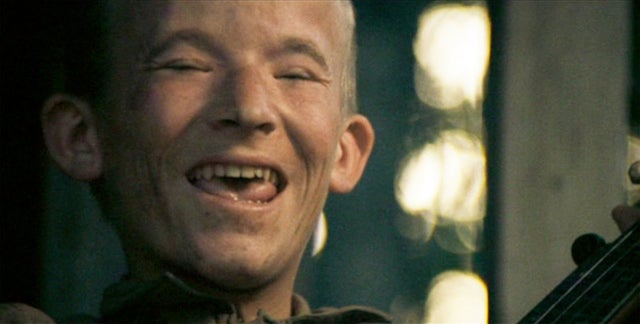Somewhere deep in rural Appalachia, a chubby Atlantan insurance salesman, Bobby (Ned Beatty), stumbles and crawls through mud and fallen leaves. He is nearly naked, and pursued by a gap-toothed local in overalls. Nearby, his friend Ed (Jon Voight) is tied to a tree with his own belt, his head and neck forced to an awkward angle, a second slovenly local watching over him with a rifle. As Ed watches, the local catches Bobby, gets a firm grip on his ear, and utters the now-familiar line: “Squeal like a pig.”




is 40 years old this summer. When it landed in 1972, an adaptation of the James Dickey of the same name, it made the twanging strains of its original theme, “Dueling Banjos,” notorious. It earned an Oscar nomination for Best Picture, and gave us two crude catchphrases: “Squeal like a pig,” from Bobby’s rapist, and “He’s got a real pretty mouth,” courtesy of Ed’s slow-talking minder.
But the movie hasn’t only endured thanks to its contributions to pop culture slang and shorthand, or the shock value of its signature scene. The movie still matters because it gets at a fundamental truth about our relationship with the wild outdoors.
Deliverance opens with charismatic Lewis, played by a young , leading a group of four friends out of the city for a canoe trip down the Cahulawassee: “just about the last wild, untamed, unpolluted, un-fucked-up river in the South.” The Cahulawassee is about to be dammed and the whole area flooded, and Lewis wants to run the river before the waters rise for good. With him are his friend Ed, who seems like he knows his way around the wilderness some, and two greener city slickers: chubby Bobby and lean, mild-mannered Drew (Ronny Cox).
From the beginning, a line is drawn between sedate city life and the unpredictability of the rural margins. “Listen, Lewis, let’s go back to town, play golf,” Ed says after the group is first confronted by a faded gas station and its loitering, toothless locals. But they hit the river anyway, navigate their first set of serious rapids, and then knock off for some man time around the campfire, a successful first day done.
That night, Lewis is startled by a noise, and vanishes into the black empty woods to investigate. When he gets back, he tells the others: “I thought I heard something.” Bobby asks, “Something, or someone?”
And that’s the key to Deliverance’s enduring fear factor right there—even after four decades, even though everyone who’s watching the movie, nowadays, knows what’s coming. Sure, we love to scare ourselves with the gory details of animal attacks—bears, sharks, ‘gators—and the awesome power of avalanches, hurricanes, and earthquakes. And we can’t resist a story about a freak accident leading to a death in the wilderness. But when you strip everything away, our deepest fear about being alone in the wild has nothing to do with the creatures and natural phenomena that belong there. In the end, the most terrifying possibility is that we will run into some of our fellow humans, without the civilizing restraints of culture and society to bind our behavior, and theirs.
A few years ago I tried to explain, to a friend who’d grown up in small-town Vermont, why I was sometimes nervous alone in the forest at night. Cities were what made him nervous, he said, because of the crowds of people around him, potential evil-doers all. I told him I figured that most people are good, and so in a crowd the odds are you’ll find plenty of help if you run into trouble. In the forest, I told him, or in any of the yawning rural spaces across North America, if you bumped into a shady character there would be no one to hear you scream.
On their second day on the Cahulawassee, Ed and Bobby get separated from Lewis and Drew, and when they beach their canoe and pause for a rest on the riverbank, the two locals find them. Lewis and Drew arrive in time to rescue the pair from any further assaults, and then the group tries to decide what to do next. Drew wants to go to the nearest authorities and report everything. “It is a matter of the law,” he says. “The law?” Lewis yells back at him. “What law!” He gestures around them at the big empty river and the mud and the trees. “Where’s the law?” Exactly.


